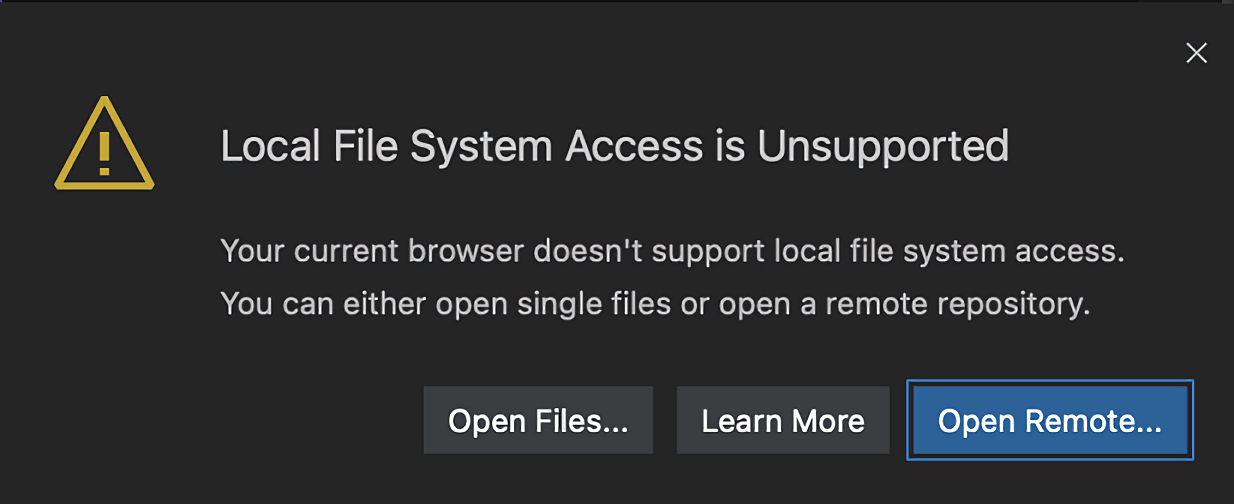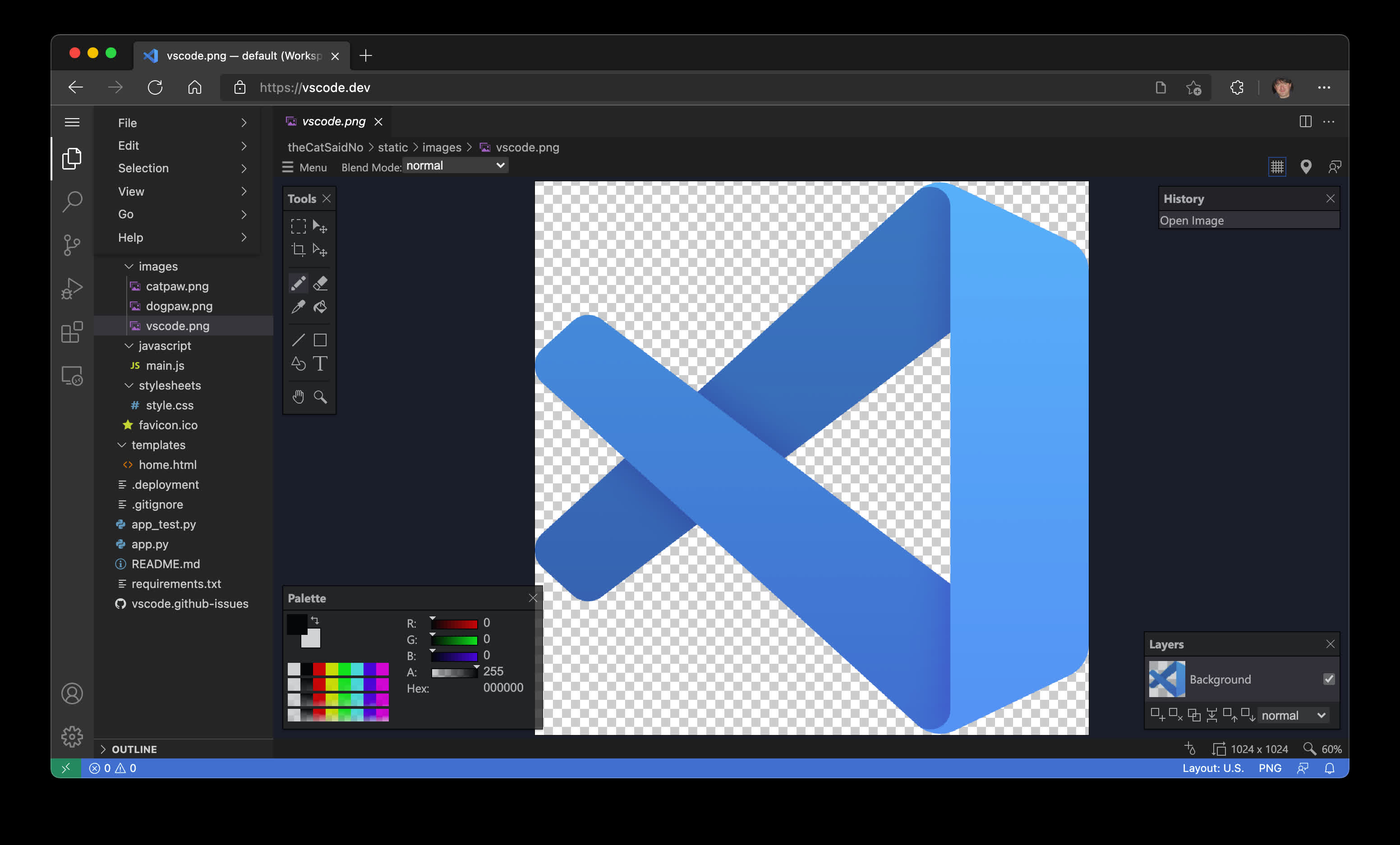In brief: If you’ve ever wanted to run Visual Studio code in a web browser, now you can. Microsoft has made a zero-installation version of the popular desktop app that can be used as a local development tool, but naturally there are some caveats.
Microsoft has revealed that developers who use Visual Studio Code can now run it in a web browser. In other words, the Redmond company just made it possible for anyone to use its popular lightweight integrated development environment without having to download an installer.
To get started, you have to navigate to vscode.dev in your favorite web browser. If you’re using Google Chrome or Microsoft Edge, you’ll be able to work with local files directly as both browsers support the File System Access API. However, working in other browsers will require you to upload and download code files one by one, so it’s a bit less convenient for now.

As this is a web app, the experience will be somewhat limited compared to the desktop version. This means that while you can view and edit local files, take notes in Markdown, and write client-side apps using HTML, JavaScript, JSON, and CSS, you won’t have access to either a terminal or a debugger and also won’t be able to build or test run apps written in complied languages like C, C++, Rust, and more. You will, however, get things like text-based completions or code syntax and bracket pair colorization.
This shouldn’t be surprising given the limitations of the sandbox environment of a browser tab, but when it comes to web apps, you’ll be able to build them in Visual Studio Code for the Web and also use the browser tools for debugging. If you’re developing using TypeScript, JavaScript, and Python, you’ll be able to leverage single file completions, semantic highlighting, and more.

You’ll also get access to UI customization extensions, snippets, and key maps, and their settings will sync across desktop, web browser, and GitHub Codespaces. Over time, extensions for other purposes such as image editing will become available as their developers update them to work in the web browser.
Visual Studio Code is already a lightweight version of Visual Studio that companies like Facebook have successfully adopted for internal development, so the natural question is — who is this new, even lighter version for? For one, it allows you to edit code on tablets like Apple’s iPad Pro and low powered machines like Chromebooks. It also supports Live Share for the web, which opens up some interesting workflows for education environments.

